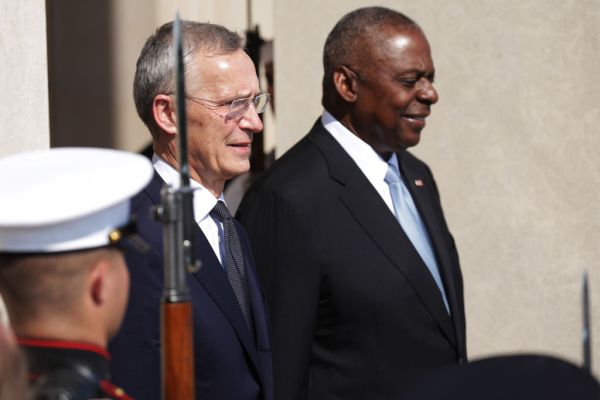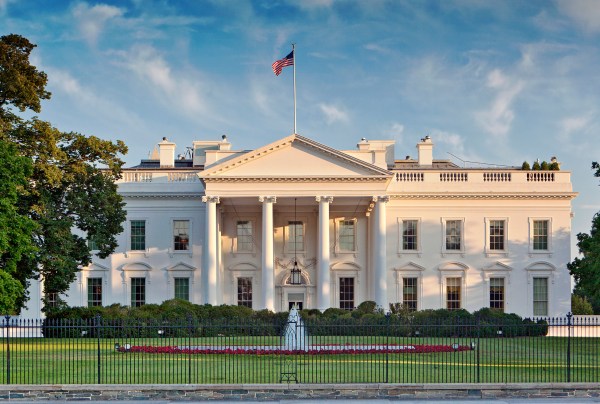Readers of George Orwell’s 1984 will remember Winston Smith confronting the chilling possibility that citizens can be made to believe anything the Party wishes, even that 2 + 2 = 5. But only few probably know—I did not, until I learned it from Masha Karp’s recent George Orwell and Russia—that Orwell’s inspiration for the idea was an actual propaganda poster which claimed the “enthusiasm of the workers” in Stalin’s Soviet Union would enable them to complete in only four years what had been planned for a standard five-year plan.
Karp provides a host of similar details to showcase how Orwell’s understanding of totalitarianism and its victims stemmed not only from his literary imagination, but also from a sustained engagement with Russian communism. As a former Russian features editor at the BBC World Service and translator of Orwell’s Animal Farm into Russian, she traces that engagement with both deep knowledge of Russia and a journalist’s eye for detail. Orwell is often a kind of ideological Rorschach blot, with different readers finding different things in him: the anti-imperialist, the socialist intellectual, the cold warrior. For Karp, he is first and foremost a diagnostician of Russian political pathologies, whose insights into the Soviet regime raise important questions about totalitarianism—in both his time and ours.
The book begins in the late 1920s, when the young Orwell—just shy of 25, fresh off five years with the Imperial Police in Burma—traveled to Paris to visit his Aunt Nellie and her partner Eugène Lanti. The two were not only leaders in the Esperanto movement, which sought to create a global language in the late 19th and early 20th centuries, but also committed communists, seeing the twin causes as allies in the fight for global justice. Stalin’s regime thought differently, however, and when Nellie and Lanti refused to treat Esperanto as a mere tool of the Politburo, the Soviets denounced Lanti and cut off his access to Russian Esperantists. Orwell thus learned early on that Soviet leadership was more interested in cementing its own power than in uniting the workers of the world.
His later experience in Spain further opened Orwell’s eyes to the sinister nature of Stalinist totalitarianism. In 1936, he traveled to Barcelona to join the POUM militia, a Marxist but anti-Stalinist group fighting against Franco’s fascists. At that time, Barcelona was controlled by anarchist revolutionaries belonging to the National Federation of Labor and the Iberian Anarchist Federation. They deeply impressed Orwell. As he later wrote in Homage to Catalonia, he sensed among them “a belief in the revolution and the future, a feeling of having suddenly emerged into an era of equality and freedom.”
But Spanish politics was far more complicated than Orwell had imagined. Within a few months, he discovered that the Communist Party of Spain (PCE)—yet another communist faction in the country—was taking orders directly from Moscow. For them, it was not enough to fight Franco: One was also expected to support Stalin. Though they ought to have been allies—or so Orwell naively assumed—the PCE began targeting groups like the POUM, whom they regarded as mere social democrats, too bourgeois, or (worst of all) “Trotskyist.” Some of Orwell’s friends were killed, and the Soviet secret police began mounting a case for his own arrest. He narrowly escaped Spain with his life. Never again would Orwell consider Russian communism a friend to his own brand of socialism.
What was that brand? Karp recounts how Orwell always maintained that capitalism was unjust and that economic planning was necessary in the industrial age. Yet he also saw clearly that both Soviet communism and German national socialism were parallel forms of collectivist tyranny. As the Cold War began, Orwell conceded that, given a choice between America and the Soviet Union, he would have to choose America—though more out of resignation than enthusiasm.
Karp also expresses guarded sympathy for Norman Podhoretz’s claim that Orwell would have been a neoconservative in the 1980s. Perhaps—he obviously shared the neocons’ unrelenting opposition to Soviet communism. But Orwell’s political allergies were strong, and an allergy to capitalism was consistently among them. Karp quotes him in the mid-1940s expressing allegiance to “the older conception of Socialism, which laid its stress on liberty and equality and drew its inspiration from the belief in human brotherhood.”
That falls well short of a political program, but mostly captures Orwell’s political ideals: liberty, equality, brotherhood. To that list I would add a fierce commitment to truth. Orwell refused to engage in wishful thinking, refused to be deceived or to let those around him be deceived. The most frightening aspect of Soviet totalitarianism, on full display in Animal Farm and 1984, was its ability to sow doubt and uncertainty through a combination of propaganda and fear. That Soviet subjects might have gradually lost the ability to distinguish between truth and lies is understandable. Less so for fellow travelers in the West, whom Orwell decried for parroting whatever line came from Moscow. In a striking phrase, he accused them of falling victim to “the gramophone mind.” Instead of thinking for themselves, they reproduced the dogmatic and inflexible doctrine of their communist masters, playing the latest hit record from Russia over and over again, like “fifty thousand gramophones … playing the same tune.”
The gramophone mind has unfortunately returned, making George Orwell and Russia more than a historical study. As becomes explicit in her closing chapter, Karp believes that after the Cold War ended in 1989, Western observers longing for a new world order succumbed to the hope that a peaceful and liberal Russia would emerge from the Soviet ruins. Ideological blinders and simple greed at the chance to profit from the opening of the Russian economy prevented Western liberals from recognizing that the country was again descending into oligarchical collectivism under Vladimir Putin. His rule has proved no less totalitarian than that of his predecessors, and warning signs have been accumulating: political arrests, restrictions on the media, the shutting down of human rights organizations. But the scales finally fell from Western eyes in 2022, with Russia’s “special military operation” to “denazify” Ukraine—euphemisms that Orwell would certainly have excoriated as doublethink.
Although Karp is especially concerned with Western blindness about Russia, it is impossible to read her book without also pondering the fortunes of truth here at home. She describes the intense use of propaganda in Putinist Russia so that citizens are “sure that what they were told was the only truth, while anything else was ‘fake news’”; an insistence on unity and the vilification of political enemies; an atmosphere of “fear and hysteria”; deliberate cultivation of a crisis mentality; “organised lying”; and a “new kind of cynical impudence, which seemed to mock the very notion of truth and celebrate its own impunity,” aimed at persuading people “of the unreliability of any information.” This all sounds unnervingly familiar.
The contemporary United States is a far cry from Putin’s Russia. But the gramophone mind, in both its left- and right-wing variants, is also in full swing here today. Orwell would have recognized the signs and called us to account.








Please note that we at The Dispatch hold ourselves, our work, and our commenters to a higher standard than other places on the internet. We welcome comments that foster genuine debate or discussion—including comments critical of us or our work—but responses that include ad hominem attacks on fellow Dispatch members or are intended to stoke fear and anger may be moderated.